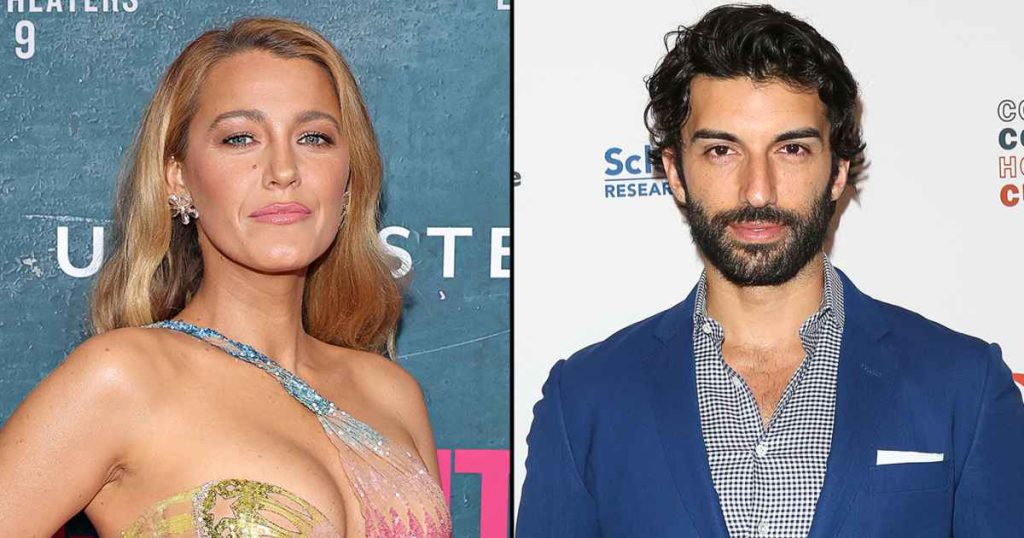The relationship between Blake Lively and Justin Baldoni, co-stars in the film adaptation of “It Ends With Us,” deteriorated dramatically following the film’s production, culminating in a lawsuit filed by Lively against Baldoni for sexual harassment. Lively’s lawsuit paints a picture of a hostile work environment fostered by Baldoni’s alleged inappropriate behavior, which she claims included unwanted physical contact, sexually suggestive comments, and a concerted effort to tarnish her reputation. Lively contends that Baldoni’s actions were not only unprofessional but also manipulative and designed to silence her concerns.
Central to Lively’s allegations is Baldoni’s alleged insistence on adding gratuitous sex scenes to the film, despite Lively’s objections. The lawsuit details instances where Baldoni allegedly improvised physical intimacy, including kissing and biting Lively’s lip without her consent. Lively also accuses Baldoni of making inappropriate comments about his sex life and pressuring her to appear nude in a birthing scene, despite her discomfort. The lawsuit suggests that Baldoni’s behavior extended beyond the set, with Lively citing instances where he allegedly discussed his “pornography addiction” and made comments about her weight, creating an environment that she found humiliating and degrading.
Lively further alleges that Baldoni, along with producer Jamey Heath, repeatedly disregarded her privacy and personal boundaries. She claims that Heath showed her a video of his naked wife and observed her while she was topless and undressed in her trailer, despite her explicit requests for him to leave. The lawsuit also details instances where both Baldoni and Heath allegedly entered Lively’s trailer while she was undressed, including while breastfeeding, creating an environment that she perceived as invasive and disrespectful. These incidents, according to Lively, contributed to a pervasive sense of unease and discomfort on set.
Despite a meeting held to address Lively’s concerns, where Wayfarer, the production company, reportedly acknowledged the need for a safe environment, Lively alleges that Baldoni’s inappropriate behavior continued. She describes an incident during a slow dance scene where Baldoni allegedly ran his lips down her neck and made a suggestive comment about her scent, actions that she claims were not part of the script and made her uncomfortable. This incident, coupled with the alleged body-shaming remarks and unauthorized contact with her fitness trainer, further underscores Lively’s claims of a hostile work environment.
Lively’s lawsuit goes beyond individual instances of alleged misconduct, accusing Baldoni of orchestrating a calculated campaign to damage her reputation. She alleges that Baldoni, along with the studio’s publicist, engaged in what she describes as “astroturfing”—manipulating public opinion through fabricated online comments and posts—to discredit her and portray her in a negative light. The lawsuit cites text messages and emails that allegedly reveal Baldoni’s intent to “bury” Lively and control the narrative surrounding the film’s production. Lively claims that Baldoni’s team sought to leverage social media trends, even referencing a specific thread about Hailey Bieber, to create a negative narrative about her.
This alleged “social manipulation” campaign, Lively argues, was further amplified by Baldoni’s strategic shift in social media presence after the film’s premiere. The lawsuit claims that Baldoni drastically altered his online persona, canceling lighthearted posts and focusing on content related to survivors of domestic violence. Lively suggests that this shift was a calculated attempt to portray himself as an advocate and deflect attention from the allegations of misconduct. She alleges that Baldoni prioritized manipulating public perception over addressing the concerns raised about his behavior on set. Baldoni’s lawyer, however, vehemently denies all of Lively’s accusations, calling them false, outrageous, and part of a calculated attempt to repair her own reputation. He further suggests that Lively’s behavior on set was unprofessional and included threats to disrupt production if her demands were not met. This stark contrast in narratives highlights the complexity of the situation and the challenges in determining the truth amidst conflicting accounts.

